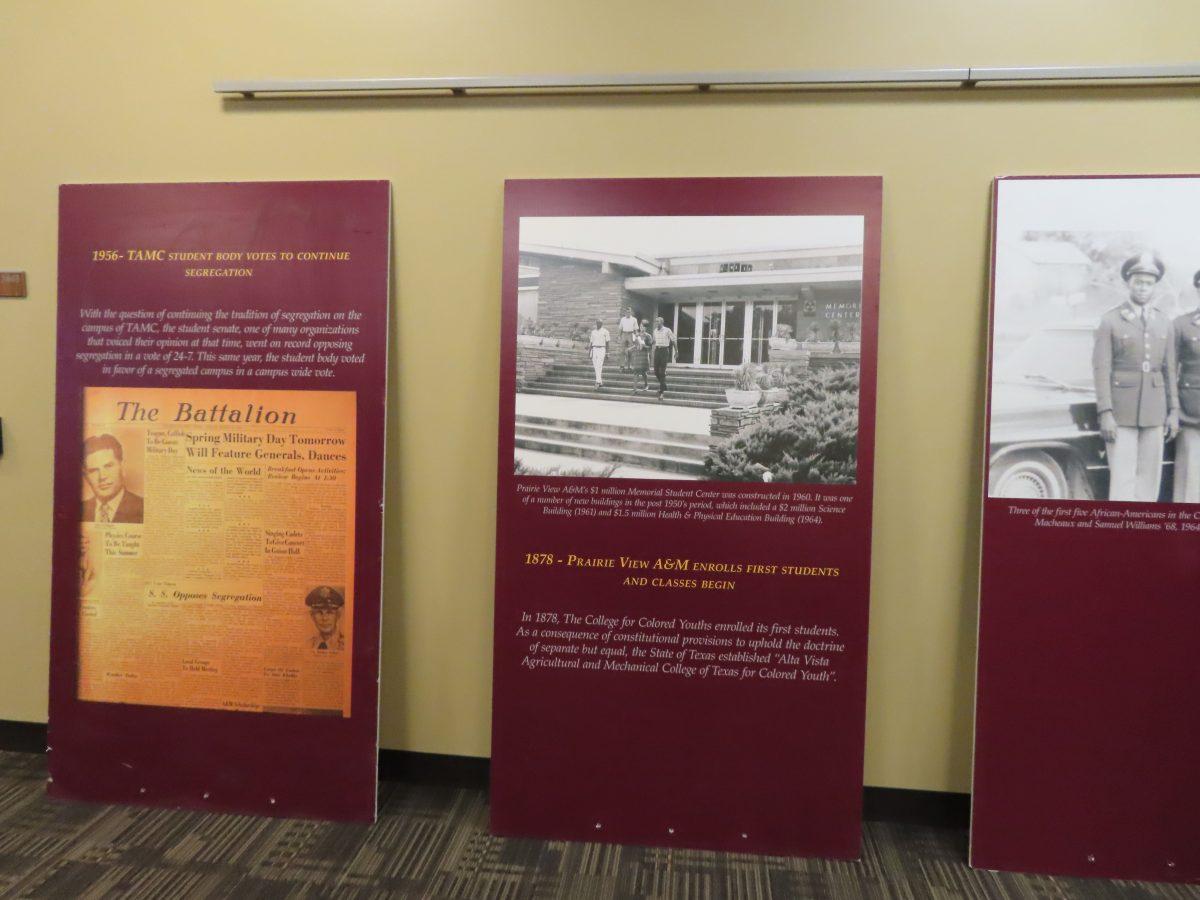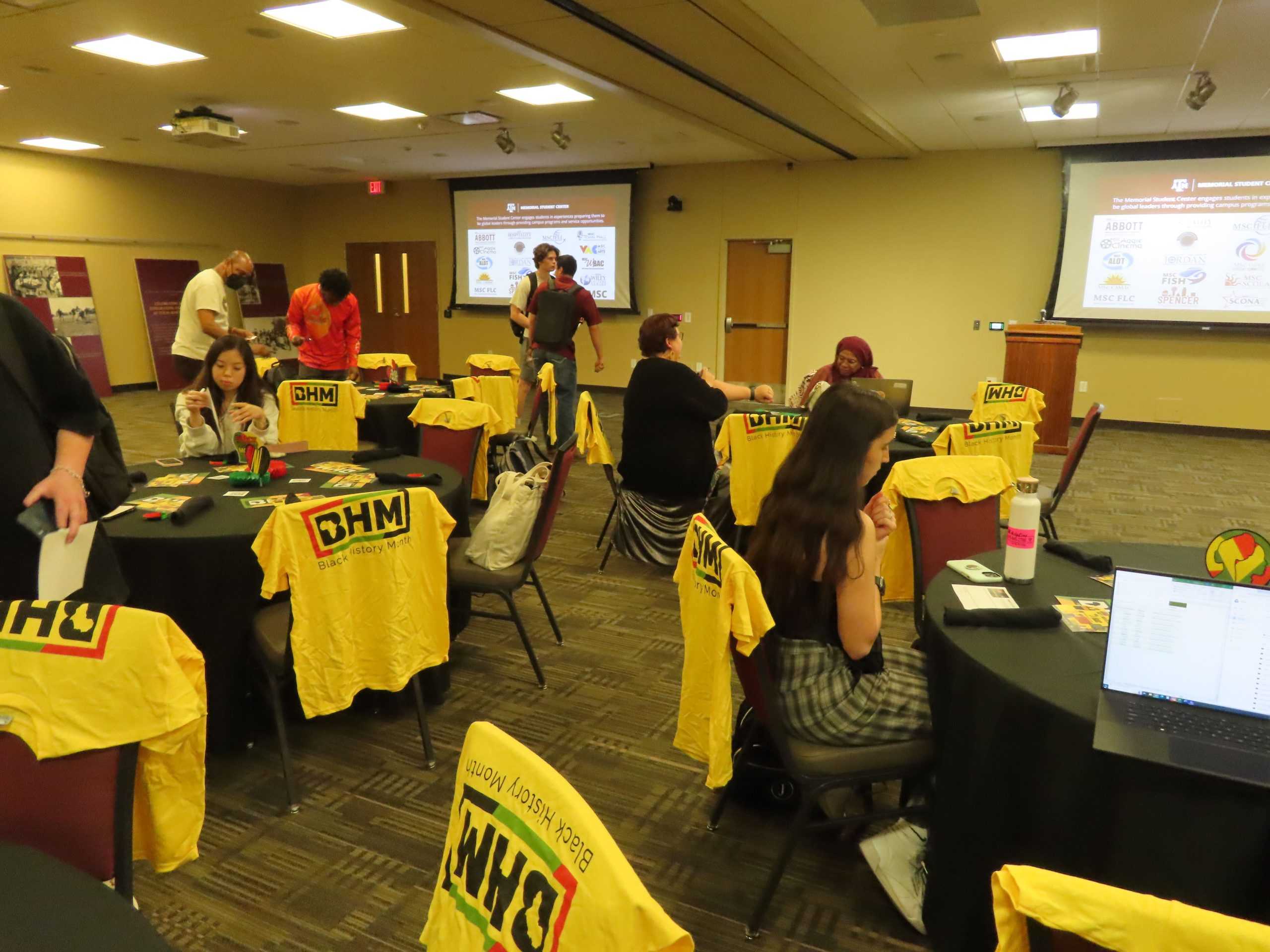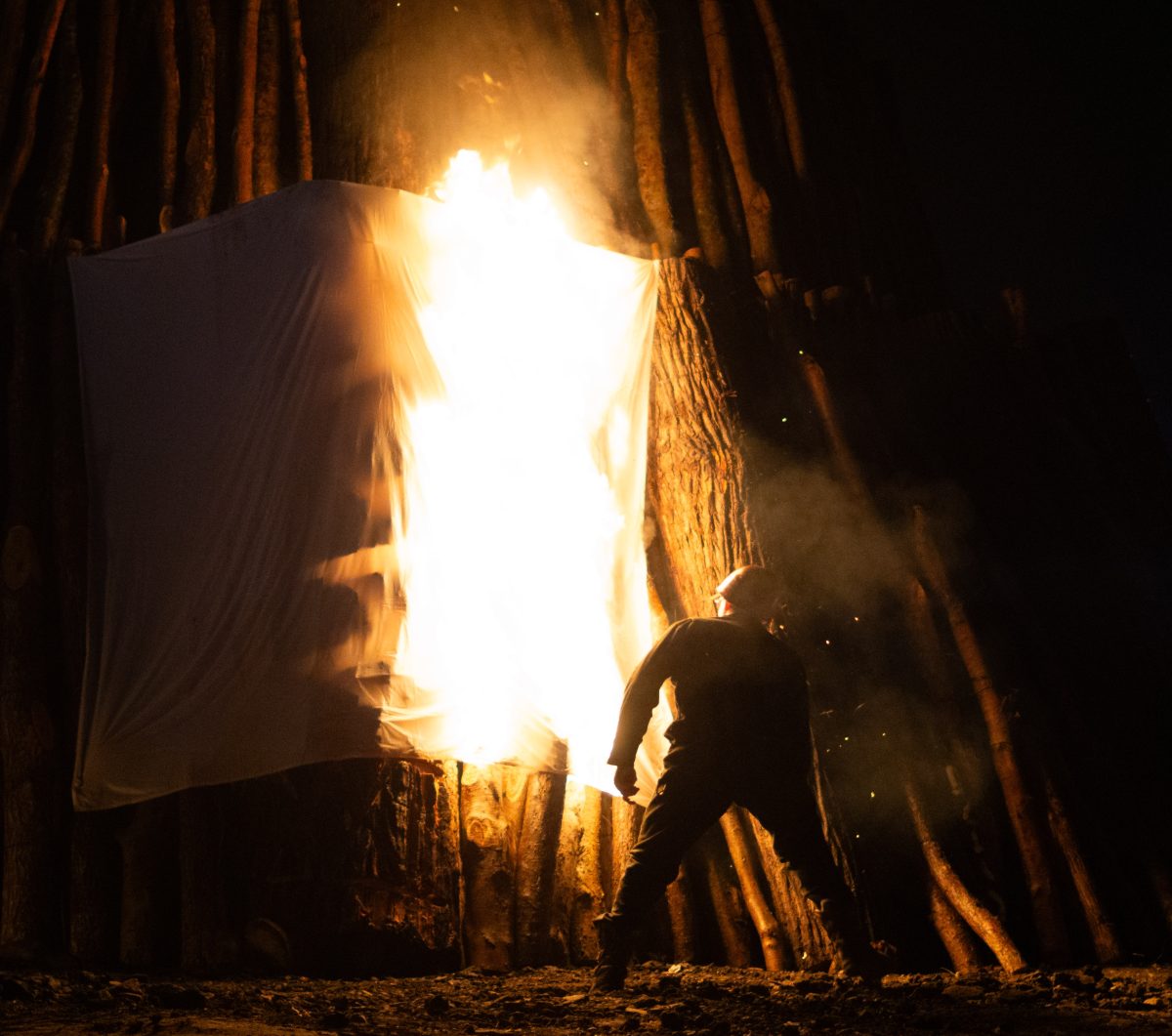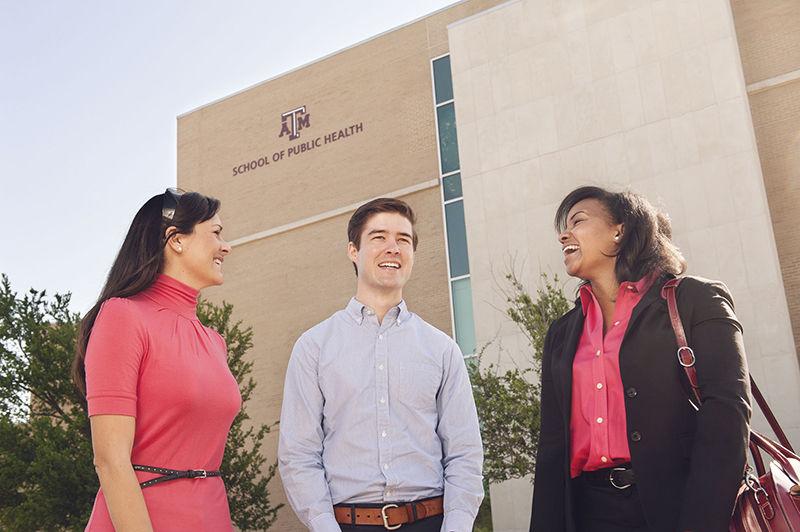As a part of Texas A&M’s Black History Month celebration series the Memorial Student Center, or MSC, Woodson Black Awareness Committee, or WBAC, hosted speaker and professor Rebecca Hankins for a Soul Food Dinner on Tuesday, Feb. 28, where students listened to a presentation on African American History.
The event began with participants walking around the room examining display boards depicting major events affecting African Americans at A&M. The boards showed displays such as a historical edition of The Battalion, covering the 1956 TAMC student body decision to continue segregation on campus.
Next, Hankins was introduced and began her presentation regarding Black history in the context of Texas, discussing documents such as the constitution of the Republic of Texas and the Morrill Act of 1862. She also said Texas continued to harbor slave owners because it was the last state to free enslaved African Americans.
“This is something that may not be told in your history books, but it is so important to understand that Texas … was a sanctuary state for slaveholders,” Hankins said. “It was a place that other slaveholders, when they saw the emancipation proclamation coming, that it was being signed, they rushed into Texas.”
Topics such as Juneteenth in the context of A&M is important, Hankins said, and the historical reasoning behind why the institution started accepting African Americans into the university. She said despite the fact that African Americans had such an essential role in creating the university, African Americans were not permitted acceptance until the 1960s.
“Why is Juneteenth important to know? Because after the emancipation proclamation was signed, it took two and a half years for African Americans enslaved in Texas to get their freedom,” Hankins said.
There was a dark history of the A&M board of directors and many of the traditions, Hankins said. Several board members were Ku Klux Klan, or KKK, members, and to meet the qualifications of several organizations, being a part of the KKK was a requirement. The 12th Man tradition also originated from a member of the KKK, Hankins said.
Hankins concluded by naming some historic African American organizations on campus, such as African American Professional Organization, or AAPO, and finished by answering a few crowd questions.
“Texas history is Black history,” Hankins said.
Biomedical sciences junior Kierra Land said learning about the timeline’s proximity was incredibly powerful.
“I’d probably say that the most impactful thing that I’ve learned was just how close the timeline has been,” Land said. “To find out that women just came here in 1969 and my parents were born in 1970.”
Applied mathematical sciences junior Maddison Webb said that Black History Month is significant to her for many reasons such as understanding in the academic setting.
“Black History Month means everything to me,” Webb said. “I think that, you know, growing up in a traditional academic setting, Black history wasn’t prioritized even though it is part of American history, and so it should be spoken about.”










